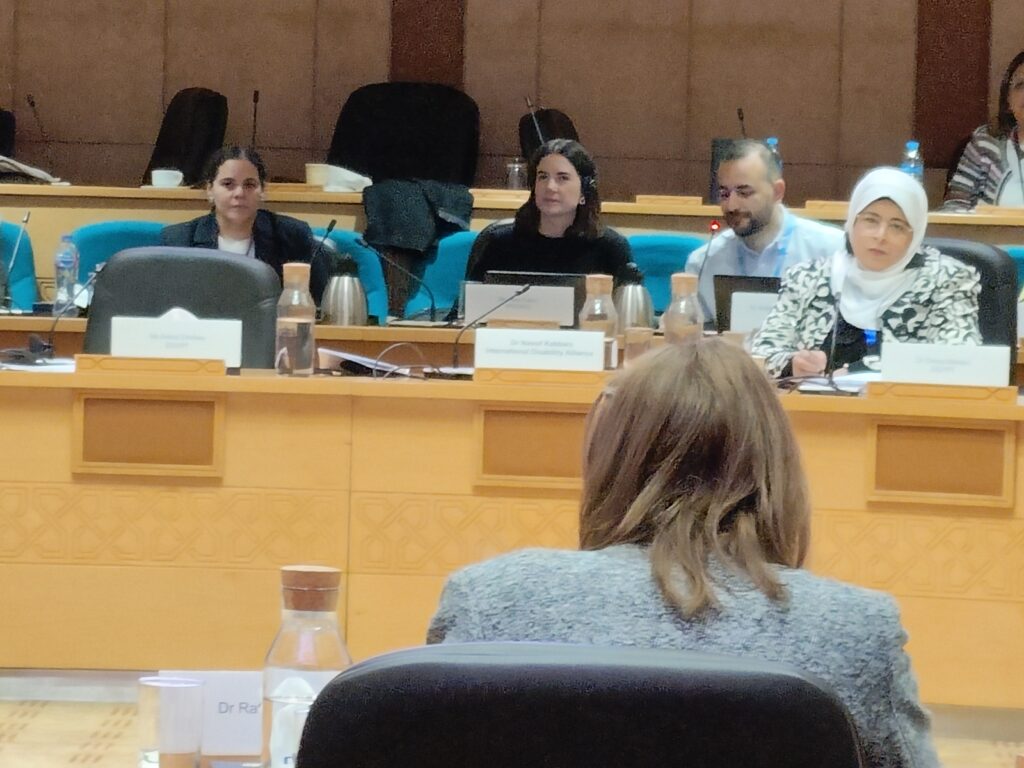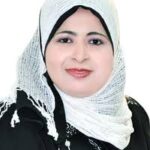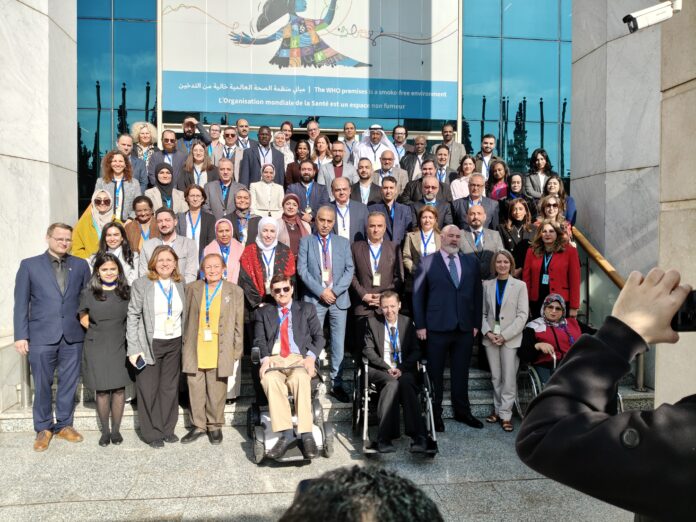The global conversation around assistive technology took a significant leap forward during the “Multi-Country Workshop on Assistive Technology,” co-hosted by the World Health Organization (WHO) and UNICEF from December 3 to 5, 2024. This pivotal event, supported by the Government of Ireland, convened policymakers, healthcare providers, UN personnel and assistive technology stakeholders from 11 countries across the Eastern Mediterranean, Middle East, and North Africa (MENA) regions to address the urgent need for equitable access to assistive technology.
Assistive technology is an umbrella term for assistive products and their related systems and services. Assistive products help maintain or improve an individual’s functioning related to cognition, communication, hearing, mobility, self-care and vision, thus enabling their health, well-being, inclusion and participation.
More information can also be found on the WHO assistive technology factsheet.
Context: The Crucial Role of Assistive Technology
Assistive technology encompasses a broad spectrum of products—from eyeglasses and hearing aids to advanced prosthetics and communication devices—that empower individuals with disabilities, older adults, and those with chronic health conditions to lead dignified, productive lives.
The urgent need to integrate assistive technology into primary healthcare systems is a crucial step toward achieving Universal Health Coverage (UHC). This urgency was echoed at the recent “Multi-Country Workshop on Assistive Technology,” where stakeholders from the MENA region discussed the stark reality. Despite over 2.5 billion people worldwide requiring assistive technology, access remains minimal, particularly in low-income and crisis-affected regions. Addressing this gap by embedding assistive technology into primary care ensures that vulnerable populations—such as individuals with disabilities, older adults, and those with chronic conditions—receive equitable, comprehensive support, a foundational element of UHC.
As someone deeply invested in the field, I found the workshop particularly relevant for the MENA region, where only 10% of individuals in need have access to assistive technology. Conflict, economic disparity, and humanitarian crises exacerbate these challenges. Yet, amidst these obstacles, opportunities for progress abound, as highlighted in the workshop’s objectives and deliberations.

Key Takeaways from the Workshop
The workshop underscored the importance of collaborative efforts to accelerate assistive technology access and included discussions on national planning, resource sharing, and the integration of assistive technology into emergency response frameworks. Below are some of the pivotal themes and recommendations that emerged:
1. Policy Development and National Planning
Governments across the region were encouraged to develop comprehensive national policies aligned with WHA Resolution 71.8, as well as WHO and UNICEF guidelines, including the Global Report on Assistive Technology and the WHO-GATE 5P framework. Prioritizing assistive technology in national health and social welfare agendas was emphasized as a critical foundation for progress.
2. Inclusivity in Emergencies
Conflict and crises significantly increase the demand for assistive technology. Examples from Palestine, Syria, and Morocco showcased successful initiatives where assistive technology solutions were integrated into emergency responses, ensuring effective support for affected populations.
3. Collaboration and Stakeholder Engagement
Effective assistive technology implementation requires a multi-sectoral approach. Workshop participants emphasized the importance of partnerships between governments, NGOs, private enterprises, and local communities to create sustainable and scalable AT solutions.
4. Training and Workforce Development
Developing a skilled workforce to deliver and sustain assistive technology services is essential. Key recommendations included establishing nationally accredited training programs to strengthen workforce capacity and improve the quality and consistency of services. Resources to support workforce training, such as the WHO Training in Assistive Products and the WHO Wheelchair Service Training Package, were highlighted as valuable tools for this effort.
My Reflections and Insights
As a medical anthropology lecturer and researcher, I shared my insights on the transformative potential of user-centered design in assistive technology. I emphasized the power of choice—customized options tailored to users’ physical, psychological, and social needs—as a cornerstone of effective assistive technology solutions. Affordability, durability, and cultural relevance are essential factors in ensuring acceptance and long-term use.
I also highlighted the legal strides in Egypt, such as Law No. 10 of 2018, which advanced the rights of persons with disabilities. However, I believe further actions are needed, including:
- Creating electronic platforms to connect users with manufacturers and service providers.
- Strengthening research and development efforts to innovate affordable and adaptable assistive technology products.
- Launching mobile maintenance units for rural and remote areas to address service gaps.

Conclusion: Building Bridges, One Device at a Time
The workshop concluded with a call to action: every stakeholder has a role in bridging the gaps in assistive technology access. Whether through policy advocacy, community engagement, or technological innovation, the path forward demands unity and unwavering commitment.
As we strive toward a future where assistive technology is universally accessible, I am reminded of the transformative power of collaboration and ingenuity. Together, we can ensure that no one is left behind.

Dr. Omniia Mohsen
Dr. Omniia Mohsen is a researcher in Medical Anthropology with over a decade of experience. She focuses on the cultural dimensions of health, disability, and elderly care, exploring how societal beliefs and systems shape perceptions of assistive technologies. Her work emphasizes the importance of cultural context in enhancing user experiences and advancing inclusive healthcare.
Employing methodologies such as interviews and ethnography, Dr. Mohsen advocates for data-driven policies to address the needs of individuals with disabilities. She is a strong proponent of user-centered design and cultural sensitivity, contributing to international efforts to expand access to assistive technologies. Her research and advocacy bridge gaps in healthcare, presenting a transformative vision of dignity and empowerment for all through innovative and inclusive solutions.





